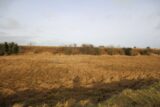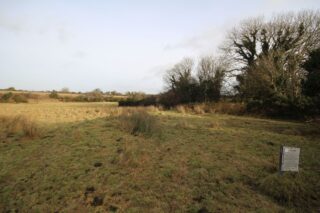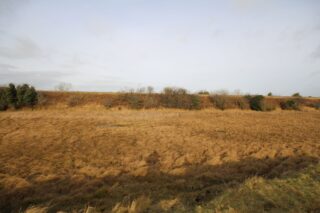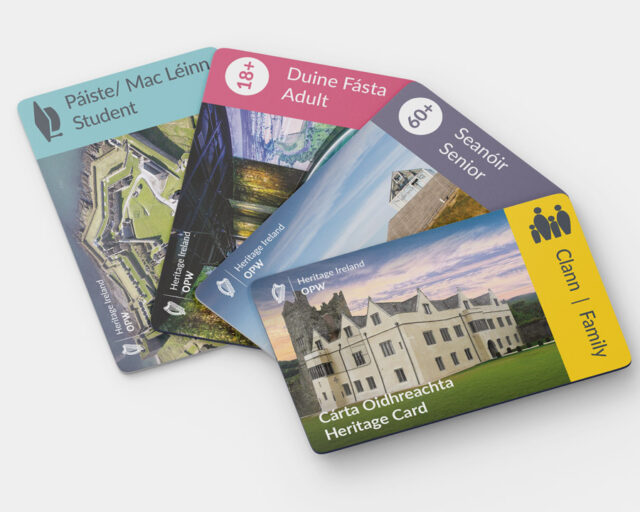Notice
Kilcornan Settlement is a state-owned National Monument in the care of the Office of Public Works
*Please be aware this monument is located in a farming field*
WARNING: It should be noted that these sites are unguided and a level of care and caution should be maintained during all stages of your visit. The Office Of Public Works (OPW) will not be held responsible for any damages, injuries, or losses that occur
Kilcornan Settlement
The deserted settlement of Kilcornan was re-discovered in 1970 by aerial reconnaissance. Clearly laid out walls and fields were captured. Eight rectangular plots on either side of a street covers an area of c.110m by 100m. A street runs through this area, east to west. The overall area is 300m by 275m. The eight rectangular plots were found to have up to two houses per plot, giving rise to the local moniker for the area being ‘the sixteen tenants.’ In 1862 the recorded owner of these lands was Mr. Clarke, with Kilcornan recorded to have been made up of 416 acres; 1 rood; 26 square perches. Kilcornan was, in the 1860’s, mainly cultivated land, but one-quarter was bog. Kilcornan deserted settlement is described to be in poorly drained land, bounded by two streams. Experts believe that Kilcornan settlement dates to the 17th/18th century. It is accepted that the settlement was abandoned by the 19th century due to the natural environment.
Visit Historic Environment Viewer for more information on Kilcornan Settlement
Protect our Past - Click here to read about the importance of protecting our country’s unique heritage sites
This national monument is protected in accordance with the National Monuments Acts 1930 to 2014
Gallery
Nearby sites to visit
Athenry Castle
An emblem of Norman lordship
Approx. 21.6 km from Kilcornan Settlement
Ennis Friary
Admire some exquisite Renaissance carvings
Approx. 31.3 km from Kilcornan Settlement
Portumna Castle and Gardens
Seventeenth-century splendour on the shores of Lough Derg
Approx. 41.9 km from Kilcornan Settlement
Aughnanure Castle
A historical gem in the heart of Connemara
Approx. 44.2 km from Kilcornan Settlement
Askeaton Castle
A ruined stronghold of the earls of Desmond
Approx. 57.9 km from Kilcornan Settlement
Ionad Cultúrtha an Phiarsaigh Conamara- Pearse’s Cottage and Visitor Centre
A cottage steeped in revolutionary history and Gaelic culture
Approx. 59.6 km from Kilcornan Settlement



